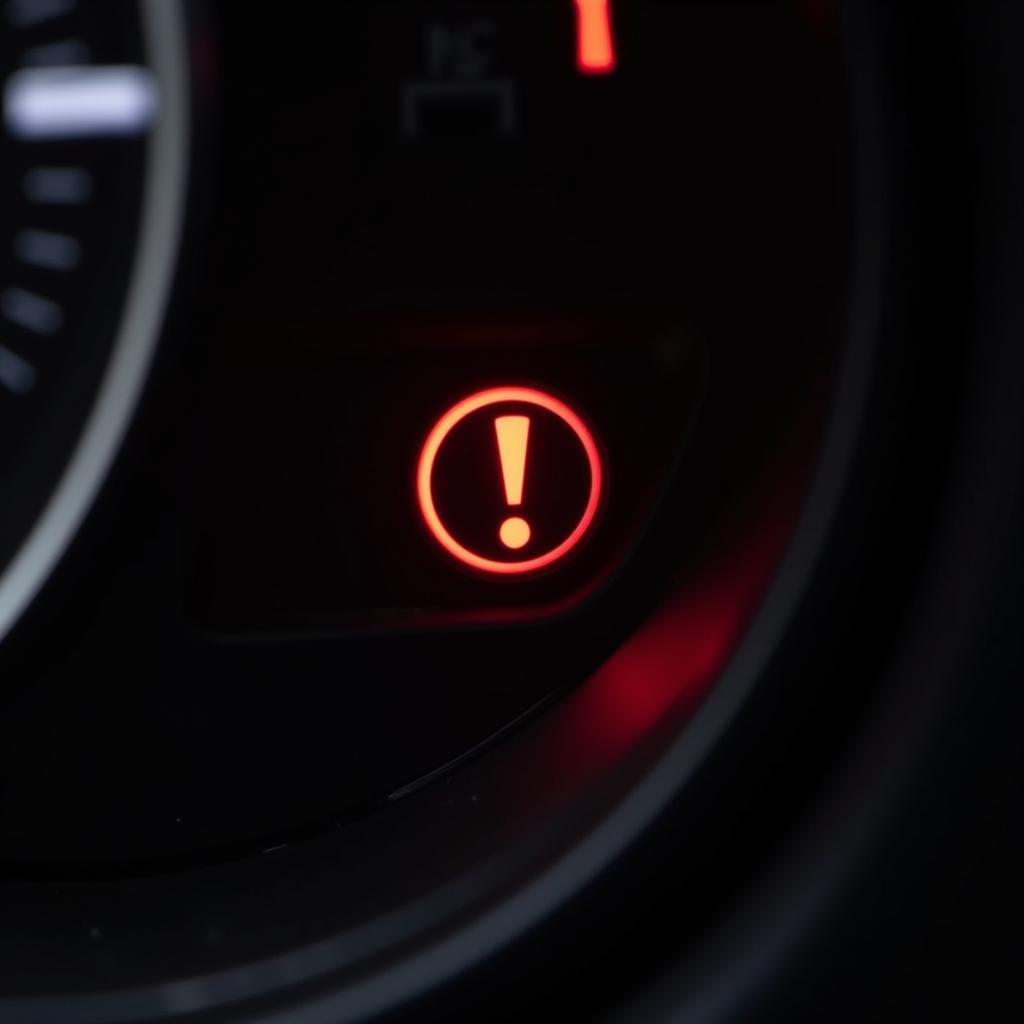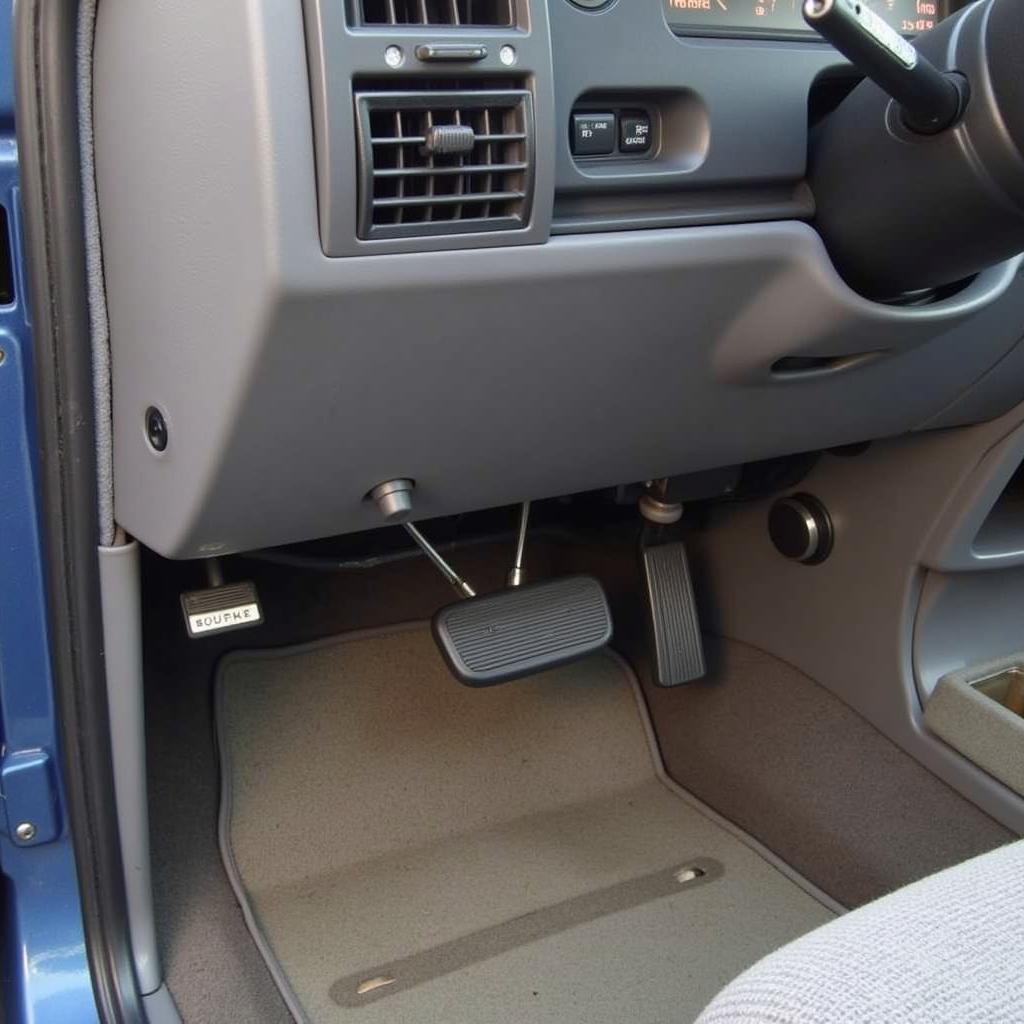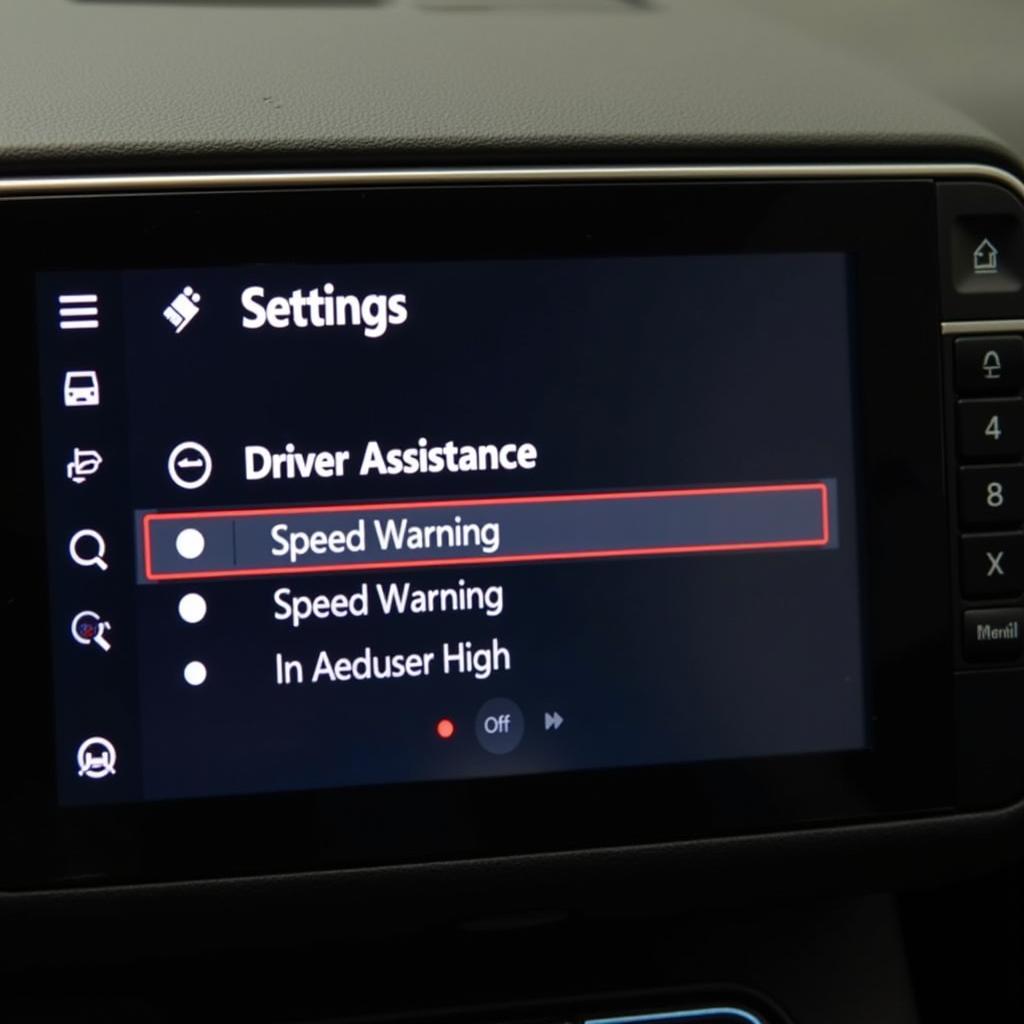Seeing a brake warning light illuminate on your BMW’s dashboard can be unnerving. While it’s crucial to never ignore this warning, understanding its potential causes and how to address them can save you time, money, and stress. This guide explores the common reasons behind a BMW brake warning light and provides insights into turning it off, whether it’s a simple fix or requires professional attention.
Decoding the BMW Brake Warning Light
Your BMW’s brake warning light serves as a critical safety feature, alerting you to potential issues within your braking system. However, it’s essential to understand that this light can signal a range of problems, from minor to serious.
Here’s what your BMW brake warning light could mean:
- Worn Brake Pads: The most common culprit, worn brake pads, have sensors that trigger the warning light when they reach a certain wear level.
- Low Brake Fluid: Brake fluid is the lifeblood of your braking system. A leak or low fluid level can significantly compromise braking performance.
- ABS Issue: A malfunctioning Anti-lock Braking System (ABS) can trigger the warning light.
- Brake Light Malfunction: A burnt-out brake light bulb can sometimes cause the warning light to activate.
- Faulty Brake Sensor: Like any sensor, the brake pad wear sensors can malfunction, leading to a false warning.
 BMW Brake Warning Light on Dashboard
BMW Brake Warning Light on Dashboard
DIY: How to Turn Off the Brake Warning Light BMW
Before attempting any DIY fixes, remember safety is paramount. If you’re uncomfortable working on your vehicle, consult a qualified mechanic.
1. Check Your Brake Fluid:
- Locate the brake fluid reservoir under the hood (refer to your owner’s manual).
- Visually inspect the fluid level. If it’s low, carefully top it off with the recommended brake fluid type for your BMW model.
2. Inspect Your Brake Lights:
- Have a friend press the brake pedal while you check that all brake lights (including the high-mounted one) are functioning correctly.
- Replace any burnt-out bulbs.
When a Simple Fix Isn’t Enough
If the brake warning light persists after checking the brake fluid and lights, it indicates a more complex issue that requires professional diagnosis.
Here’s where remote diagnostics and software solutions come in:
- Remote Diagnostics: As an expert in automotive electrical engineering, I specialize in remote diagnostics. By connecting to your BMW’s onboard computer, I can quickly identify the root cause of the brake warning light, saving you valuable time and potential misdiagnoses.
- Software Programming & Installation: Modern BMWs rely heavily on software. Issues within the braking system’s software can often be resolved remotely through reprogramming or software updates. This eliminates the need for extensive disassembly and can often be completed more efficiently.
Don’t Ignore the Warning: Expert Help Is Available
Attempting to drive with an illuminated brake warning light is incredibly risky. If the DIY solutions haven’t resolved the issue, don’t hesitate to seek expert assistance. My specialized remote diagnostics and software solutions can pinpoint and address the problem effectively, getting you back on the road safely.
FAQs About BMW Brake Warning Lights
1. Can I drive my BMW with the brake warning light on?
It’s highly discouraged. The brake warning light signals a potential problem with your braking system, compromising your safety.
2. How much does it cost to fix a BMW brake warning light?
The cost varies widely depending on the underlying cause. A simple brake pad replacement is less expensive than addressing an ABS module issue.
3. How often should I check my BMW’s brake fluid?
It’s recommended to inspect your brake fluid level at least every other oil change or every six months.
4. Can a low battery cause the BMW brake warning light to come on?
While uncommon, a severely low battery can sometimes disrupt the vehicle’s electrical system, potentially triggering warning lights.
5. How long can I drive with worn brake pads before damaging my BMW?
Continuing to drive with worn brake pads can damage your rotors and other braking components, leading to costly repairs. It’s essential to address the issue promptly.
Don’t let a brake warning light overshadow your BMW driving experience. By understanding the potential causes and seeking professional assistance when needed, you can keep your BMW running smoothly and safely.


